Voting Is Jewish: Reflections from a First-Time Voter
This essay is part of JWA’s 2020 Suffrage Series on the blog.
I can remember the first time I voted with almost perfect clarity. I was probably six, maybe younger. I can’t recall a ton from that age, but I’ll never forget the whoosh of the privacy booth’s curtain closing behind me, the cool feel of the rubber lever under my hand, the satisfying clunk as I brought it down to finish the process. I remember the rush I felt as I stuck the “I Voted” sticker onto my child-sized jacket. Sure I wasn’t technically eligible to vote and was just helping cast my mother’s ballot, but that first taste was all I needed to know I loved the feeling of voting. It told me that what I had to say mattered.
Fast forward thirteen years to late February, the final days of early voting for the March 2020 primaries and I was, at long last, seconds away from feeling that sensation again. I was positively giddy, vibrating with excitement as I waited in line, chatting about the various candidates with the six or so friends I’d gathered to go to the polls with me. As the designated researcher of the group (perhaps that particular job comes with the territory of the whole I-get-butterflies-about-voting thing), I was eager to pass on the information I’d gathered on whoever was running for Commissioner of Agriculture or School Board. I’d carefully formed opinions after hours of pouring over campaign websites and interviews in the local paper. Perhaps this was a method of procrastinating on my school work, but what better excuse than civic duty to put off homework?
And I do see voting as my duty. Who am I to complain about the state of things if I don’t do the bare minimum to participate in government... especially after so many spent so long fighting for my spot in that line? The significance of the moment wasn’t lost on me as I made my way through the various checkpoints and got ready to receive my paper ballot. Having a Constitutionally-protected right to exercise my political voice is not necessarily a guarantee I can cast a vote. From the early days of the United States when voting power was legally reserved for white, landowning men, to the rampant voter suppression still going on today, the path to the American ballot box has often been one blocked by discrimination.
But I made it. As I deliberated over the same names I’d been staring at for weeks, carefully filling in each bubble, I felt the weight of a thousand hands on my own, holding it. Guiding mine were the hands of women who spent years in protest, on picket lines, outside the White House, and inside jails to pry the doors of democracy open wide enough that I could slip inside. Women who fought for something they felt was so foundational to the realization of their personhood that they were willing to lose families, jobs, and positions in their communities.
August 20, 2020 marks one hundred years since the Nineteenth Amendment was signed into US Constitutional law. Two short sentences enfranchised (over the next few decades) an uncountable number of women and restored to them the right that had been promised in the language of all our founding documents, but had been denied in legislation for over 130 years. The women who brought this change into reality came from every class, every race, and every religion. They were motivated by differing desires, but they were united in their conviction that a person is only a full person under the eyes of the law if they have the ability to use their voice.
Of course one person won’t change an election. Of course making an effort on Election Day and never again will not enact change. But to vote is to assert your personhood.
As I slid my filled-out sheet of paper into the scanner, waiting patiently for my participation in democracy to register in the Cloud, I felt that same rush I’d experienced over a decade ago when I’d pulled the final lever on my mom’s ballot. But I also felt something else.
I felt Jewish.
As someone who, in the last couple years, has begun to embark in earnest on the endless journey that is defining my own personal Judaism, I’ve come to see the many ways I can fold the lessons of my religion into secular moments. Is voting not, in essence, the conscious act of adding your voice to the complicated, messy discussion that’s been going on in this country for hundreds of years? Is that not the root of the Talmud or of asking questions at the Seder table? Judaism commands us to listen, to research, to ask, and to join in the debate.
Sure, it isn’t widely seen by rabbis as a mitzvah, but I believe Judaism commands me to vote.
I left the polling place head held high, the “I Voted” sticker plastered front and center on my now-adult-sized jacket, and I could almost see my feet falling into place in the footprints of the century of women who came before me. Many of the suffragists who carved this path were Jewish, and I like to think that as I exercised the freedom they’d fought for me to hold, they saw, smiled, and whispered “mazel tov.”

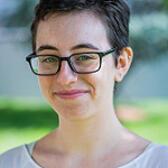
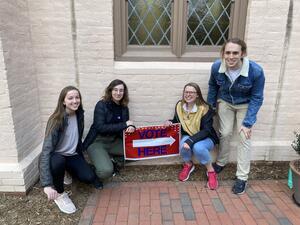
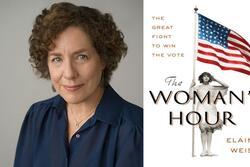
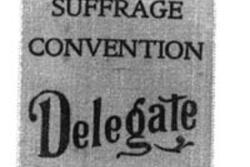
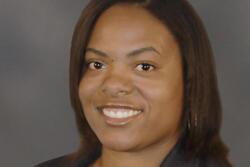


Thank you for sharing your experiences as a first-time voter. I hope your commitment and well-informed interest in voting encourages others to vote and participate in local, state and national elections. Mazel tov, indeed!
Brilliant :)